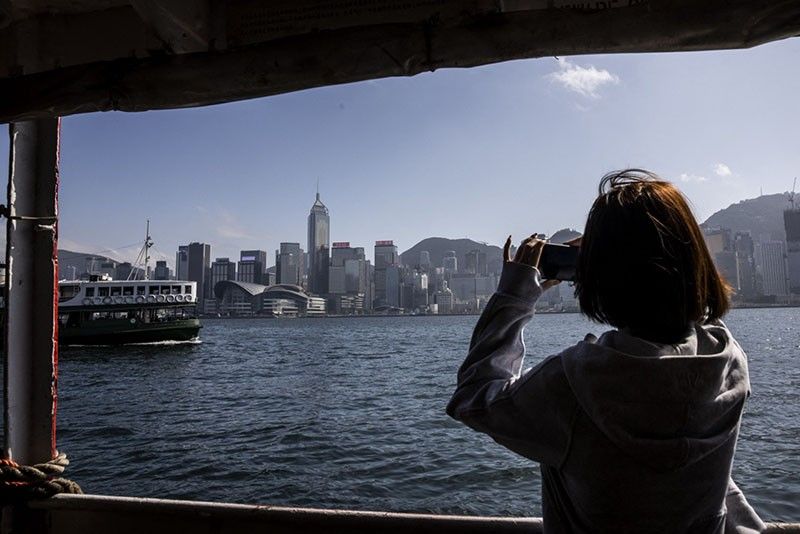HK builds on ‘historical friendship’ with Philippines to foster BRI projects despite China tensions

HONG KONG — Despite territorial tensions between the Philippines and China, Hong Kong (HK) officials have reaffirmed their openness to nurturing business opportunities with the Philippines, highlighting the strength of their “historical friendship.”
During a recent press briefing at the ongoing Belt and Road Summit in HK, Commissioner for Belt and Road Initiative (BRI) Nicholas Ho emphasized the inclusive nature of the BRI—China’s world-spanning infrastructure and investment project—and expressed optimism for continued collaboration with the Philippines.
“The Belt and Road Initiative is an inclusive platform. We work with everyone and want to work with everyone,” Ho told the media. “Our goal is to foster long-term partnerships to enhance regional connectivity and stability.”
In 2023, the Philippines made a decision to withdraw from three rail-funding discussions under China’s BRI, marking a notable shift in its approach to infrastructure financing.
This move also came in with the simmering tensions in the West Philippine Sea, where territorial disputes have intensified between China and the Philippines.
Nevertheless, HK remains optimistic about the growing connections between the two regions, as according to Ho, both people-to-people and business-to-business interactions with the Philippines are growing.
Ho further acknowledged the deep-rooted ties between HK and the Philippines, noting, “There are many Philippine nationals in Hong Kong from different sectors, and we are the oldest of friends.”
This sentiment is reflected in post-COVID travel trends, where visitors from the Philippines were among the first to surpass pre-pandemic levels, underscoring the robust connectivity between the two regions.
In a separate briefing, Dr Patrick Lau of the Hong Kong Trade Development Council (HKTDC) reiterated that the “historical friendship” between HK and the Philippines will endure, adding that “business opportunities for Filipino enterprises in Hong Kong have not diminished at all.”
“Regardless of political considerations, business communities can still benefit from each other,” he emphasized.
HK believes the Philippines can leverage its role as a “superconnector” to access broader markets, including the Chinese economy, the Middle East, and the ASEAN region.
“Filipino enterprises can utilize Hong Kong’s global position to achieve and implement projects across various sectors, including infrastructure, technology, and smart city initiatives,” the representative concluded.
In 2022, the Philippines ranked as HK’s 11th largest trading partner globally, accounting for 1.4% of the city's total trade. Additionally, it was HK's 9th largest import market worldwide, representing 1.9% of its total imports, and the 4th largest among ASEAN member countries.
HK keen on deepening multilateral coop with ASEAN
Beyond the Philippines, HK is seeing enormous developmental potential in the ASEAN region. ASEAN is HK's second-largest trading partner, with the bilateral trade value reaching US$ 133.6 Billion in 2023, accounting for nearly 13% of HK's total foreign trade.
Last month, Chief Executive of the Hong Kong Special Administrative Region (HKSAR), John Lee, led an HKTDC delegation to Laos, Cambodia and Vietnam, which resulted in the signing of 55 cooperation Memorandums of Understanding, further expanding Hong Kong's network and economic ties in the region.
Vietnamese Deputy Prime Minister Nguyen Hoa Binh delivered a special address at the opening of the summit, reaffirming Vietnam's commitment to multilateral cooperation initiatives such as the BRI.
He stressed the importance of equal, open, and mutually beneficial cooperation, as well as compliance with international laws, in implementing regional and global economic cooperation frameworks to foster sustainable and inclusive development for all nations involved.
Moreover, the policy dialogue on the first day of the summit focused on multilateral cooperation where ministral-level officials from ASEAN and Central Asia explored opportunities for cooperation.
Rachmat Kaimuddin, Deputy of the Coordinating Minister of Maritime Affairs and Investments in Infrastructure and Transportation from Indonesia, mentioned that Indonesia will need financing investment and technology from more developed nations to continue growing its economy.
He noted that this is where HK could play its important role as a a “super-connector” mentioning technology, manufacturing and sustainable innovation as possible areas of collaboration.
The Indondesian official also shared that the country has done a lot of cooperation with BRI countries, especially China.
Among the BRI flagship projects he mentioned is the China-backed Jakarta-Bandung High-speed railway, the first high-speed train in Indonesia and Southeast Asia. The said railway went into operation in 2023, amidst concerns about its delayed completion, foreign debts and high cost of US$ 7.2 billion, more than a billion over budget.
Moreover, HK is poised to play an important role in supporting Cambodia's economic and social development.
According to the Cambodian Secretary of State of the Ministry of Commerce H.E Lim Lork Piseth, Hong Kong's strengths as a major logistics and transportation hub, as well as its connection to mainland China, make it an invaluable partner for the Southeast Asian nation.
Additionally, the opportunity for people-to-people exchanges, particularly in the realm of education, is seen as a way to strengthen the bond between Hong Kong and Cambodia.
- Latest
- Trending


























